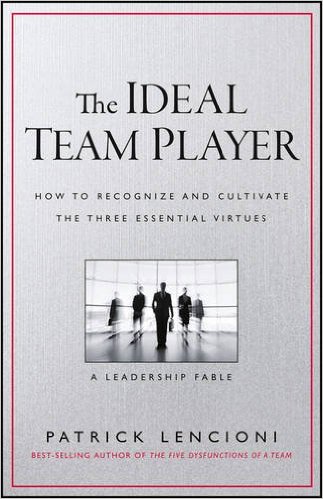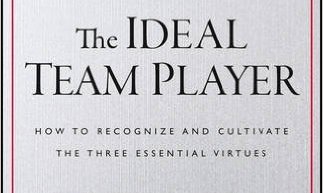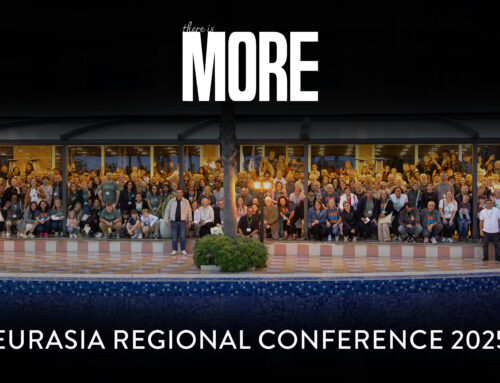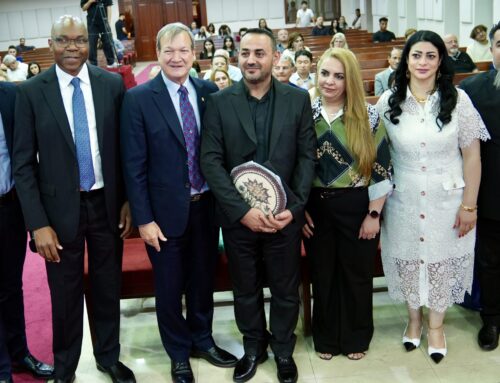 “Humble,” “hungry” and “smart” are the three virtues that Patrick Lencioni, author of The Ideal Team Player, argues are the core character traits needed to make someone an ideal part of a team.
“Humble,” “hungry” and “smart” are the three virtues that Patrick Lencioni, author of The Ideal Team Player, argues are the core character traits needed to make someone an ideal part of a team.
After reading more about these three characteristics in his New York Times-bestselling book, it’s easy to see how these virtues, as he sketches them, are supremely desirable for team members in a mission team context.
I recommend that anyone planning to become part of a mission team, or who is leading and developing a team in a missional context, read this book and seek to embody these characteristics, as well as recruit others who exhibit these virtues.
Characteristics of an ideal team player
Over years of helping workplace teams within churches, universities and businesses to become functional and healthy, business consultant Lencioni developed his theory that the ideal team player is humble, hungry and smart.
He defines the three virtues in the following ways:
Humble
Starting with “humble,” an inarguably Christlike quality, Lencioni writes, “Great team players lack excessive ego or concerns about status…. They share credit, emphasize team over self, and define success collaboratively rather than individually. It is no great surprise, then, that humility is the single greatest and most indispensable attribute of being a team player.”
Conversely, when adding someone to the team who is arrogant, the leader risks “fostering resentment, division, and politics” within the team.
Insecurity is another opposite of humility. Lencioni claims that someone with low self-worth hurts the team just as much as someone whose ego is inflated. He quotes C. S. Lewis: “Humility isn’t thinking less of yourself, but thinking of yourself less.”
Hungry
Lencioni describes “hungry” people as those who “almost never have to be pushed by a manager to work harder because they are self-motivated and diligent. They are constantly thinking about the next step and the next opportunity.”
He qualifies the kind of hunger he is talking about as a commitment to doing a job well, and going above and beyond what is expected, without allowing the job to consume the worker or dominate his or her life. A “hungry” team member will work hard and go the extra mile, while also taking sensible amounts of time for personal rest and recovery, and observe Sabbath.
Smart
Lencioni is not talking about IQ or braininess when he uses the word “smart.” What he’s describing is what some now call “emotional intelligence.” Smart people, in this sense, know how to relate to others and communicate in healthy and productive ways. They are consistently appropriate, respectful, kind and sensitive in their behaviors, conversations and relationships. They listen well, and take an interest in the thoughts, ideas and well-being of others.
Basically, they exhibit common sense about people and themselves.
While there may be many other qualities that team leaders look for in potential team members, Lencioni distilled such longer lists of qualities into these three core competencies as the most needed for success of a team.
Dangers of lacking one or more
Many people possess one or two of these traits, but Lencioni argues that cultivating all three in oneself makes one the most effective team player.
People who possess just one of the traits could fall into certain undesirable roles.
For instance, someone who is humble, but not hungry or smart, may end up being used and manipulated by others on the team, or simply left out.
Someone who is hungry – a high achiever or ambitious – but not humble or smart risks being seen as a bulldozer, “determined to get things done, but with a focus on their own interests and with no understanding or concern for how their actions impact others. Bulldozers are quick destroyers of teams.”
If someone is only “people smart,” but lacks humility or ambition, the team member may be charming and likable, but quickly becomes a drag on the team’s productivity and morale.
Lencioni spends a few more pages describing further dangers to people who possess a combination of just two of the qualities, before moving on to some tips for leaders seeking to identify those people for their teams who possess all three characteristics, making them the Ideal Team Player.
Self-evaluation
One of the best uses of the book may be for personal evaluation and assessment. The “fable,” or story, which launches the book, concerns a young man who steps into leadership of an American-based construction company after its previous leader retires. His journey of learning about the company and some of its problems and dysfunctions illustrates what happens to organizations when their employees lack the three virtues. The story also depicts possible ways to help team members cultivate the traits, as well as how to identify and add members who already have them.
While some of the characters’ language in the story could be mildly offensive to some readers, the value of the narrative is that the author’s theory is demonstrated in practice, albeit a fictional scenario.
Reading the book with an eye to self-development will enable people already on mission teams, or those preparing to deploy, to cultivate attributes that will make them valuable members of a mission team. Humility, healthy approaches to interpersonal relationships, and ambition to do one’s best in the service of Christ and others, can only give one an extra edge for positive experience, and for bringing value to a team and its mission.
Perhaps, after reading the book, find a mature, wise, spiritual mentor (who is willing to speak the truth in love) to help you evaluate where you measure up on the three virtues, and to help you as you work to cultivate these virtues in your own life and character.
The tips for sniffing out the three virtues – or their lack – in job candidates, and the list of hiring questions given at the end, are an added bonus for those interviewing candidates to join a mission team.
Written by Gina Pottenger and previously published in the September 2018 edition of Where Worlds Meet edition.




